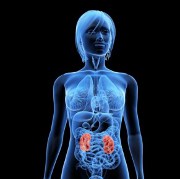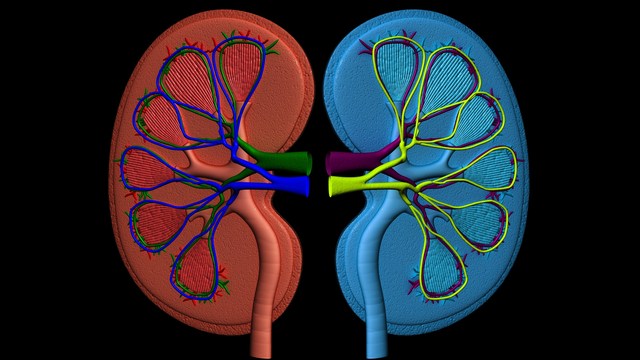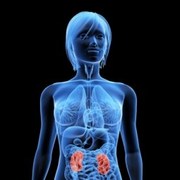 Photo: Getty Images
Photo: Getty Images
If you or someone close to you has been diagnosed with kidney disease, you might be interested in a webpage that outlines “10 things you can do to protect your kidneys." This was created by the National Kidney Disease Education Program for National Kidney Month, which happens every year in March.
What is kidney disease all about? That’s explained in Number 6 on the list, where experts said that a diagnosis of chronic kidney disease means that your two kidneys aren’t filtering blood like they should, which can cause wastes to build up in your body. Diabetes and high blood pressure are the most common causes of chronic kidney disease. The condition always sets off alarms because kidney disease can lead to heart disease, and vice versa.
More than 20 million adults have chronic kidney disease and an estimated 16.3 million -- or roughly 7 percent of adults — have heart disease. And over 7.1 million people have both, according to a media release from the National Institutes of Health. Patients whose kidneys fail must face dialysis or a kidney transplant.
The site includes a downloadable brochure as well as a chart that you can take with you to your health care practitioner whenever it’s time to track your blood pressure, your glomerular filtration rate (GFR) and the presence of albumin -- common measures for how well your kidneys are filtering wastes.
Number 1 in the education program’s list is the advice to be proactive and to get your blood and urine checked for kidney disease if you have diabetes, high blood pressure or a family history of kidney failure. Number Two is to encourage family members to get tested as well. The list also includes a link to videos about treatment options.
The keys to keeping kidneys healthy include lowering the salt intake in your diet, eating heart-healthy foods and maintaining normal blood pressure. If you are diabetic, watching your blood glucose is crucial.
The National Institute of Diabetes and Digestive and Kidney Diseases offers advice for those in the early stages of chronic kidney disease: in addition to watching blood pressure and blood glucose, follow a low-protein diet, watch your cholesterol levels, don’t smoke, take an angiotensin-converting enzyme (ACE) inhibitor or an angiotensin receptor blocker (ARB), and check in regularly with your health care practitioner.
Sources:
http://www.nkdep.nih.gov/KidneyMonth/
http://kidney.niddk.nih.gov/Kudiseases/pubs/yourkidneys/
Reviewed May 25, 2011
Edited by Alison Stanton





Add a CommentComments
There are no comments yet. Be the first one and get the conversation started!